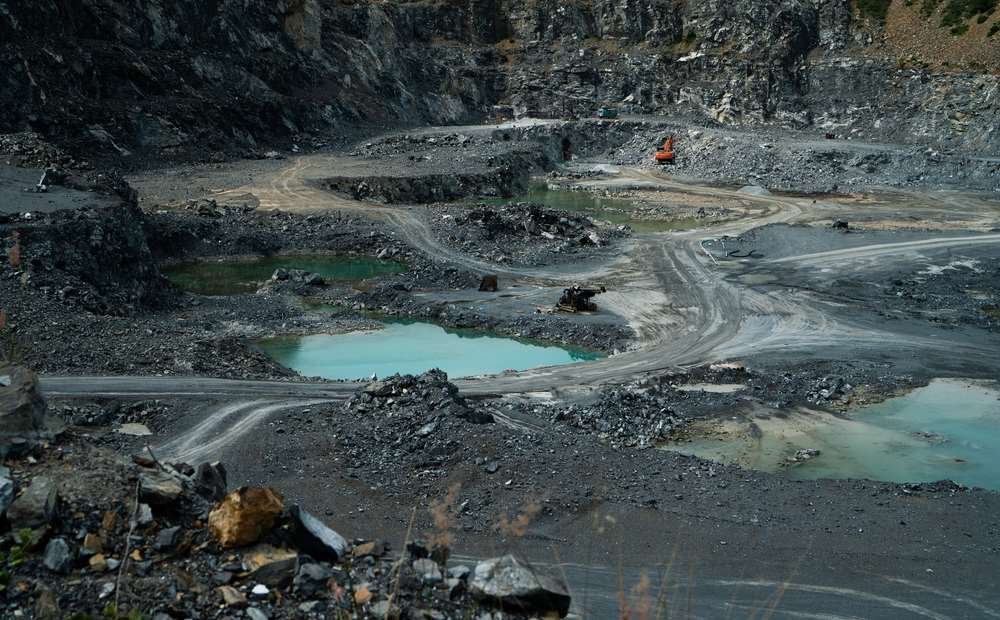Natural resource supply chains and trade finance – a view into the future
Published by Gbaf News
Posted on October 8, 2019
5 min readLast updated: January 21, 2026

Published by Gbaf News
Posted on October 8, 2019
5 min readLast updated: January 21, 2026

In this crowded world the relationship between humanity and the earth’s natural resources has not been clean. Responsible investors and buyers lack the information they need to make the right choice about their purchases due to the many pain points in the current supply chains. How is it that a bulk cargo carrier can be loaded and cross the ocean faster than the paperwork that follows it?
In many industries, but more so in respect to natural resources, current supply chains run on systems and processes designed several hundred years ago, many of which are struggling in today’s digital age and are no longer fit for purpose. By now of course, all the parties involved, including miners, traders, banks, streamers, carriers and insurers, to name but a few, have digitised their internal processes. This has created huge internal efficiencies, but the communications layer between individual companies reverts back to the lowest common denominator: email, paper and fax.
When a commodity like copper is sold from a mine the paperwork involved is touched by 10-20 companies all having some part to play in the deal. Unlike in financial markets, in the metals and mining industry there is no trusted central party, each company involved attempts to coordinate the trade, which ends up with a lot of phone calls to each other to continuously check on the status of the transaction.
So far this industry, like many others, has opted away from centralisation and from creating a trusted central monopoly. No one wants to give up control of their systems, IT roadmap, and their data. This has been a key blocker in the past for any central party being created and it is an example of market infrastructure where many users have aligned interests but no one wants to give up their control.
By using blockchain technology the data and governance can be kept in line with the current setup in any given market, ensuring that the new market system doesn’t shift the balance of power so much as to deter or halt adoption. Each company can host a server running a private blockchain and share only the relevant information with their trading counterparts. This enables a shared view into each transaction where paperwork and emails no longer need reconciling while respecting the privacy of the individual companies in the market.
Everyone talks about cost savings and it’s true that there is a huge opportunity for cost savings by digitising interactions between corporates, both in metals and mining, and in many other sectors. That said, the real opportunity lies just beyond. Digitisation acts as an enabler. Once the data is available countless integrations can be made to automate processes, and value add services can be built upon that data and those processes.
An example of the power of digitisation is the number of apps we use in our daily lives built on digital ID (for example, logging into other services or websites with Facebook Login) and digital location (mobile / GPS / Google Maps). We now take these types of underlying data points for granted of course and most new apps are built on top of these. Now imagine the data for corporate interactions could be made available to your apps – what else could you build?
Once you have an agreement in place with the companies who own the data they can provide access to it for your app. At MineHub, along with enabling provenance from mine to market, we are exploring ways to improve access to trade finance and project finance investments. By using internal tokenization of royalty streams we can create an asset that pays the investor every time products are sold from a mine. By digitising document presentation we can enable new players to offer trade finance and make the process less painful for all involved.
The digital world that is evolving today now sits in stark contrast to the analogue reality of working in natural resource supply chains and trade finance. Blockchains are an enabler for a new form of governance creating digital market services with reduced central control. This digitisation enables paperless trade and the future services we will come to rely upon.
About Hugh Halford-Thompson and MineHub Technologies
Hugh Halford-Thompson is VP of Business Development at MineHubmanaging client engagement as well as growing the consortia.Hugh has a background in Computer Science and started his career as a software developer & architect. He has founded several technology companies includingthe Bitcoin brokerage Quickbitcoin and BTL Group, which was publicly listed on the TSXV in Toronto.
MineHubis building the infrastructure for the digital transformation of the mining and metals industry, via coordination and collaboration between a large consortium of market participants. Partners and consortium members span across producers, trading houses, logistics providers, inspectors, smelters and carriers, including Goldcorp, Kutcho Copper, Capstone, ING Bank, Ocean Partners and Wheaton Precious Metals.The MineHub blockchain technology based solution is streamlining the metals supply chain by digitally transforming processes and providing traceability in a highly secure platform.
Explore more articles in the Top Stories category











